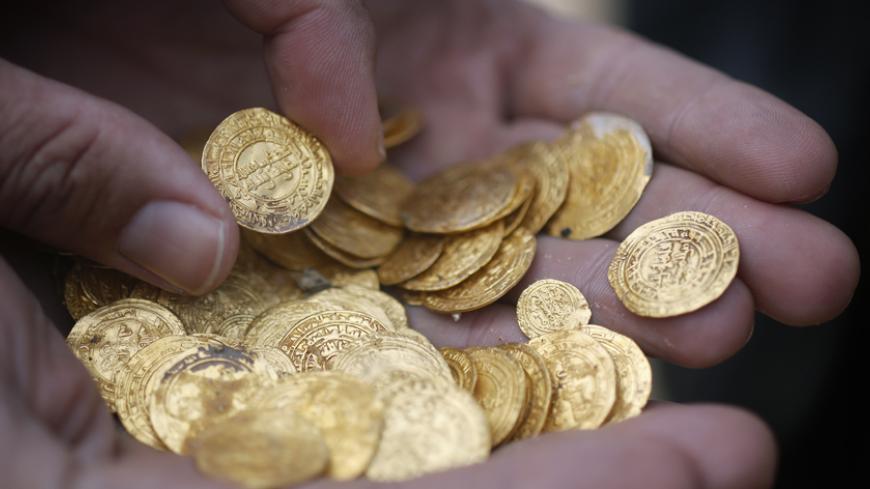The staff of the Israel Antiquities Authority (IAA) gets very nervous whenever news breaks that a large archaeological treasure has been found. That is what happened Feb. 17, when amateur divers discovered a treasure trove of rare, ancient coins near the ancient port town of Caesarea. “We know that the discovery of a treasure of this size, and the publicity that such a find receives in the media causes people to think that they can find treasures just about anywhere,” Eitan Klein, deputy director of the Unit to Prevent Antiquities Theft at the IAA, told Al-Monitor.
Klein said, “People take the law into their own hands and set out to find antiquities themselves, even though this means breaking the law and causing destruction to important archaeological sites. For the most part, they don’t even find anything. What was discovered last week is the kind of thing that happens just once every 50 years.”



